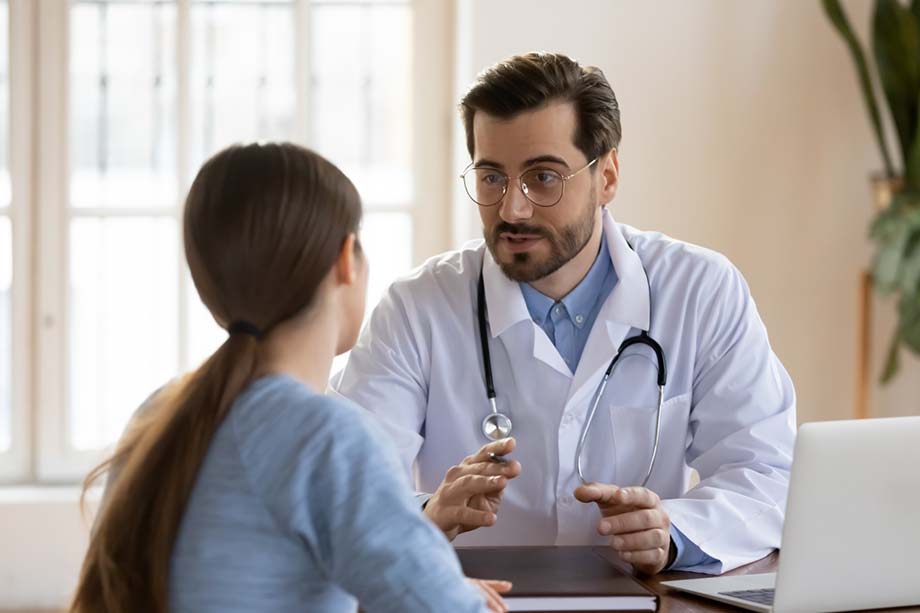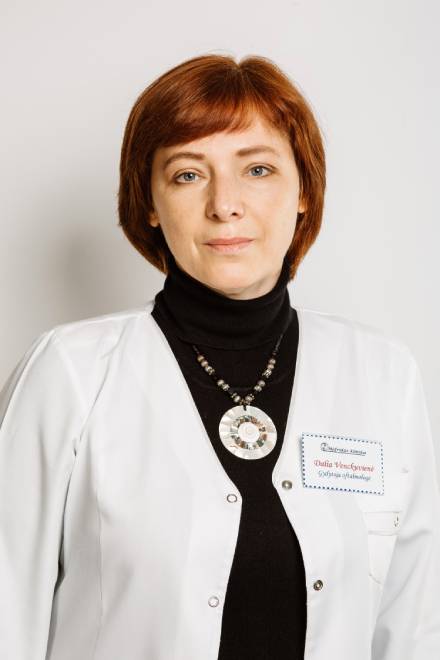

Ophthalmology
Ophthalmology is a branch of medicine that deals with vision and various related disorders and eye diseases. Ophthalmologist takes care of the prevention and treatment of eye disorders and eye diseases, and can help the patient to choose eye-correction measures – contact lenses and glasses.
Registration by phone
+370 46 397070In case of even the slightest disorder in an eye, a person begins to suffer from visual impairment that affects the quality of life, resulting in the development of various eye diseases over time. It may be congenital or acquired illnesses, and some eye diseases occur during the natural aging process.
The most common eye and vision related illnesses are:
- Cataract;
- Glaucoma;
- Myopia;
- Hyperopia;
- Astigmatism;
- Eyelid inflammation.
If you feel that your vision is no longer the same as before, ophthalmologists at the clinic “Nefrida” will carefully examine your vision, diagnose eye diseases, and apply the appropriate treatment.
Information after procedures
Often, after the procedure in the doctor’s office, patients have questions that they do not dare to ask during the visit or that come to mind only later. In this section, you will find in advance all the most useful information that you should know in the post-procedural period.

In what cases can't you wait for treatment for a long time?
You should immediately consult a doctor if you feel the symptoms that have appeared or are already aggravated, in case of various eye diseases (glaucoma, macular degeneration, certain chronic inflammations).
Is the eye examination in optical shops the same as in the Nefrida clinic?
If younger patients do not have impaired vision and do not complain of any other symptoms, such an examination is sufficient. However, the risk of eye diseases increases in elderly patients, so it is better to always have your eyes checked by an ophthalmologist.
F.A.Q.
If you are hesitating whether you really want to make an appointment for a procedure in our clinic, we invite you to read the frequently asked questions section prepared by our doctors. In it, you will find all the answers to your questions even before the procedure, so you can feel confident in your choice!
Can changes in the eyes indicate other diseases?
Recurrent eye inflammations can signal autoimmune diseases, yet undiagnosed infections. When observing certain changes in the eyes (for example, blood clots), we recommend conducting tests for diabetes and hypertension.
What are the symptoms of eye diseases and vision problems?
Most often it is a deterioration of vision, a decrease in brightness, repeated signs of eye inflammation, soreness of the eyes that is not related to their fatigue, dryness of the eyes without the help of moisturizing eye drops. If symptoms persist, we recommend making an appointment with an ophthalmologist.
When to see an eye doctor immediately?
If you have caught your eye or a foreign body has entered it, you must immediately consult a doctor, because in ophthalmology, these disorders are recorded as major eye injuries. If left untreated, vision may deteriorate. In the first few hours after experiencing the injury, there is the greatest chance of restoring quality vision.
How to preserve healthy eyes?
You should take regular breaks from computer and phone screens (at least every 20 minutes), use moisturizing eye drops when they become dry or when the climate conditions change. If your vision worsens, check whether you need glasses.
How often should you have your eyes checked?
We advise adults to have their eyes checked every 1-2 years. The eyes should be checked for the first time when the child is one year old, the second time – when the child is 3-4 years old, and the third time – before school.



